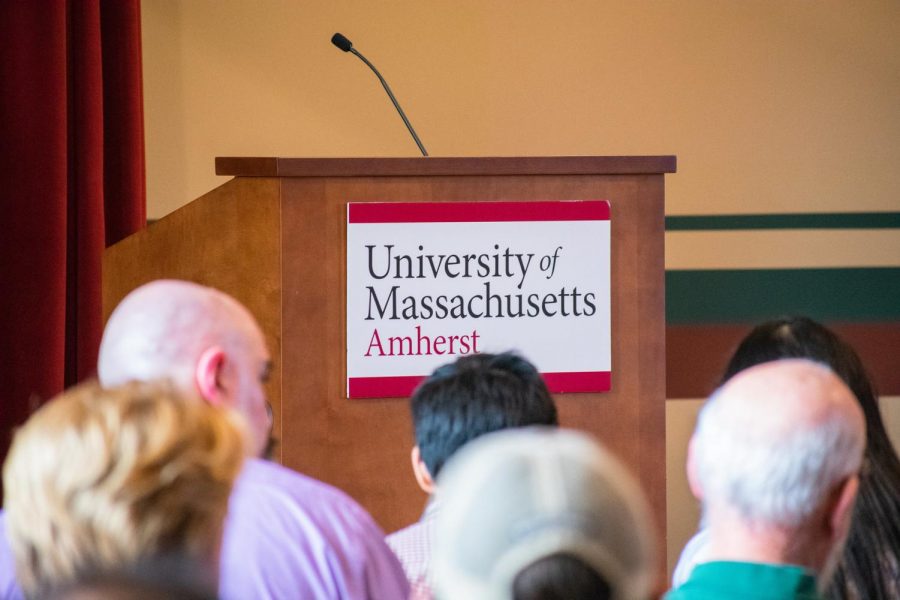With debates surrounding cancel culture and freedom of speech on college campuses growing more and more contentious, one group of academics claim to have found the magic solution: creating a new university. Condemning what they call “a pervasive climate of anxiety and self-censorship” on college campuses, the group announced last week that they will be founding the University of Austin. While the University’s backers are a diverse group of prominent higher ed critics, they all share “a common dismay at the state of modern academia and a belief that it is time for something new.” They allege that modern universities have sacrificed the pursuit of truth, and turned into breeding grounds for “liberal intolerance and administrative overreach.” By forming their own university, they hope to reestablish open inquiry as the central guiding principle of a university and promote greater diversity of thought.
But have universities really abandoned the principles of open inquiry for liberal orthodoxy? It quickly becomes apparent that such claims are quite strained. Consider the dire terms Pano Kanelos — a former St. John’s University president and a founding trustee of UATX — used to describe the state of higher education in his announcement last week: “We had thought such censoriousness was possible only under oppressive regimes in distant lands. But it turns out that fear can become endemic in a free society.”
The Stanford historian Niall Ferguson (another founding trustee) similarly wrote about the state of modern universities, saying, “Any student of the totalitarian regimes of the mid-20th century recognizes all this with astonishment. It turns out that it can happen in a free society, too, if institutions and individuals who claim to be liberal choose to behave in an entirely illiberal fashion.” Is catastrophizing college culture really warranted, or is this yet another example of moral panic?
It’s hard to deny that there are some problems with speech and censorship on campuses, but the main question is one of scale. The Foundation for Individual Rights in Education, a non-partisan organization that tracks issues of freedom of speech, has observed a substantial increase in “targeting incidents” among scholars, which is when institutions take punitive action against faculty for exercising their freedom of speech. This can include “demands for an investigation, demotion, censorship, suspension and even termination.” FIRE notes that while there were 24 targeting incidents in 2015, that number rose to 113 in 2020.
All of this does merit some attention, but not the apocalyptic rhetoric of some of UATX’s backers. As Adam Gurri notes in Liberal Currents, the number of incidences observed by organizations like FIRE are still quite small compared to the huge populations they’re drawn from.
FIRE also observes that these incidences are more often from people who are more politically left-leaning than the person targeted. It seems to me that this may be caused by a significant imbalance between the number of liberal and conservative professors at most universities.
Another issue with the rhetoric of many UATX affiliates is that they fail to recognize the variety of approaches to free speech and intellectual diversity at different universities. Michael Roth, the president of Wesleyan University, responded to the announcement of UATX by acknowledging the problem of groupthink at elite universities, but pushed back on the notion that this occurs at all universities. “The American higher education system is already immense,” Roth writes. “And once you look past those elite colleges, you’ll see a huge range of philosophies and politics.” He goes on to list several examples of these varying approaches, including that of his own University where they have sought to hire more scholars from conservative, libertarian and faith-based backgrounds to promote greater intellectual diversity.
But the largest problem with UATX is that it misrepresents these issues as the most pressing threat to America’s democracy. While it’s valid to highlight the negative consequences of rash cancel-culture cancelations and advocate for greater intellectual diversity on college campuses, the primary threats to free speech aren’t coming from universities — they’re coming from state legislatures.
Eleven bills in nine states have been passed banning the teaching of critical race theory in K-12 classes and another 18 bills are still pending. These bans have been called “educational gag orders” by the free speech organization PEN America (standing for Poets, Essayists and Novelists), since they effectively make it impossible to teach an accurate narrative of race politics in American history classes. Some of these same states have also passed electoral reforms that make it easier for state legislatures to overturn the popular vote if they claim there was voter fraud. It’s abundantly clear that the most immediate and dangerous threat to U.S. democracy comes from these efforts on the right. Complaints about college cancel culture are, at best, secondary issues and at worst, dangerous distractions.
Benjamin Schnurr can be reached at [email protected] and followed on Twitter at @Ben_Schnurr.




















David Clardy • Feb 7, 2022 at 11:31 pm
I went to college at University of Houston in 2000-2004 and some of the psychology classes were so hostile, racist against whites and sexist against males. I’m white and male and it ruined my experience, as it was difficult to learn psychology while I was constantly under attacks and bigoted insults. One of the history courses was so Marxist and just criticized the country and capitalism, using Zinn’s revisionist history as the textbook. All the class taught us was to be outraged, cynical and to believe that socialism and anarchism are the solutions. I can’t imagine how much worse colleges have become, how much wokeness has poisoned academia. It’s scary